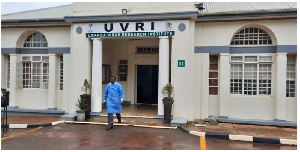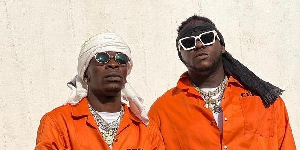Scientists at the Uganda Virus Research Institute (UVRI) have said they are designing an HIV vaccine to address the high burden of the disease.
This information comes about four months after the discontinuation of the clinical trials for an HIV prevention vaccine, which scientists at the UVRI and Medical Research Council (MRC) were spearheading.
The trials were discontinued because an independent monitoring committee found that the vaccine regimens had “little or no chance” of preventing HIV acquisition. The vaccine was not developed in Uganda but was tested in
Uganda, Tanzania and South Africa which are some of the countries with high disease burden.
In an interview yesterday on Tuesday with this newspaper, Prof Pontiano Kaleebu, the UVRI director, said the scientists are still hopeful they will find an HIV vaccine.
“We have started working on constructing an HIV vaccine. We have funding from the United States Agency for International Development through the International Aids Vaccine Initiative (IAVI) to design a messenger Ribonucleic Acid (mRNA) vaccine,” he said.
An mRNA vaccine is produced using a new technology which relies on mRNA created in the laboratory to teach our cells how to make a protein that triggers an immune response. An mRNA is a molecule (structural unit of a substance) that converts information from the genetic material Deoxyribonucleic Acid (DNA) in our body into protein.
The quest to have an HIV vaccine is partly driven by the global goal of ending HIV/Aids as a public health threat by 2030.
Currently, Uganda registers more than 50,000 new cases of HIV infections every year with about 17,000 annual Aids-related deaths, according to statistics from the Uganda Aids Commission.
Prof Kaleebu said although there is a lot of work in Uganda and other corners of the world, there will not likely be a major HIV vaccine clinical trial in the next eight years, following the discontinuation of the trial in December last year.
“All the concepts, the vaccines that we have tried did not work. Now scientists are going back to the drawing table to understand, design and do more. The large trial that we conducted recently called PrEPVacc is likely to be the last one in the coming few years. It could take eight years,” he said.
“We have now gone back to experimental medicine vaccine studies –to the drawing table. So, HIV is very complicated. We don’t have a vaccine yest and I cannot tell you we have a solution now but science is moving,” he added.
The PrEPVacc HIV prevention study, which started in Masaka in December 2020, involved experimental vaccine regimens and a new form of oral pre-exposure prophylaxis (PrEP).
The expert said venturing into the design of an HIV vaccine is happening amid ongoing work at the Institute to come up with a Covid-19 vaccine.
Dr Sheila Balinda, one of the leading UVRI scientists in Covid-19 vaccine research, said they are using techniques from Covid-19 vaccine development to come up with an HIV vaccine.
“We are still at vaccine discovery and pre-clinical research. We have generated a [vaccine] carrier from our local chimpanzees,” she said.
Click to view details



Africa News of Wednesday, 24 April 2024
Source: monitor.co.ug

















